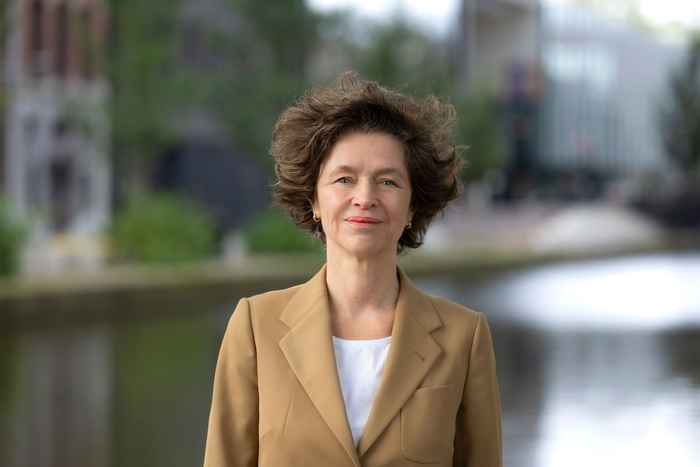Mobilising the contractual and the communal in public international law
- Date
- 17 October 2025
- Time
- 16:30 -18:00
- Location
- Aula - Lutherse kerk

The future of international law?
(Voor de Nederlandse vertaling)
Against the backdrop of human and political failure in the fulfillment of legal obligations, one frequently hears the claim that international law is ‘dead’ (The Guardian) or ‘irrelevant’ (President Trump). At the same time, it seems that more than ever the rules of international law are invoked as a means of reading and shaping the world—witness the growing practice of strategic litigation, particularly in environment and climate matters. Global challenges, from nuclear peril to climate crisis, also tend to create a demand for general international rules whose authority does not rest solely on individual agreement.
In her inaugural lecture, Catherine (Kiki) Brölmann examines to what extent international law has the instruments to meet this ambition. International law is grounded in a contractual logic—the familiar story of a Westphalian system of sovereign states. International ‘lawmaking,’ taken in the broadest sense, then depends on the freely given consent of all parties involved. Conclusion of a treaty between states is the classic example. Yet, over time ‘communal’ mechanisms of lawmaking have also developed, resting on collective choices or majority decisions.
Casting a glance into the Maschinenraum of international law is not to deny that legal mechanisms are always shaped by broader narratives, imaginaries and ideological frameworks. These may centre on freedom and autonomy, but equally on humanity, solidarity, sustainability or planetary urgency. In this respect it is worth recalling that both contractual and communal practices can be used for good as well as for ill— as states in postcolonial constellations know all too well. Treaty-making, presented as an exercise in voluntary consent, may conceal real power asymmetries. Practices of communal lawmaking, justified in terms of a common good or ‘universal value’, may entrench existing divisions.
The tension between contractual and communal practices of lawmaking— in both its technical and ideological dimensions—offers an important, and underexplored, lens for understanding the role and future of international law. Brölmann argues that in practice it is the combination of these two modes that enables international law to self-correct and to strengthen its credibility. International organisations, despite their well-known shortcomings, may still offer opportunities here. The institutional inner world of organisations usually provides space for a variety of consultation and decision processes, along with greater nuance in normativity and wider participation by non-state actors than is typically allowed in the general legal landscape. This is a perspective that will matter as the United Nations has marked its 80th anniversary and faces renewed debates over its mission, methods, and reform.
You can watch the lecture online here .
